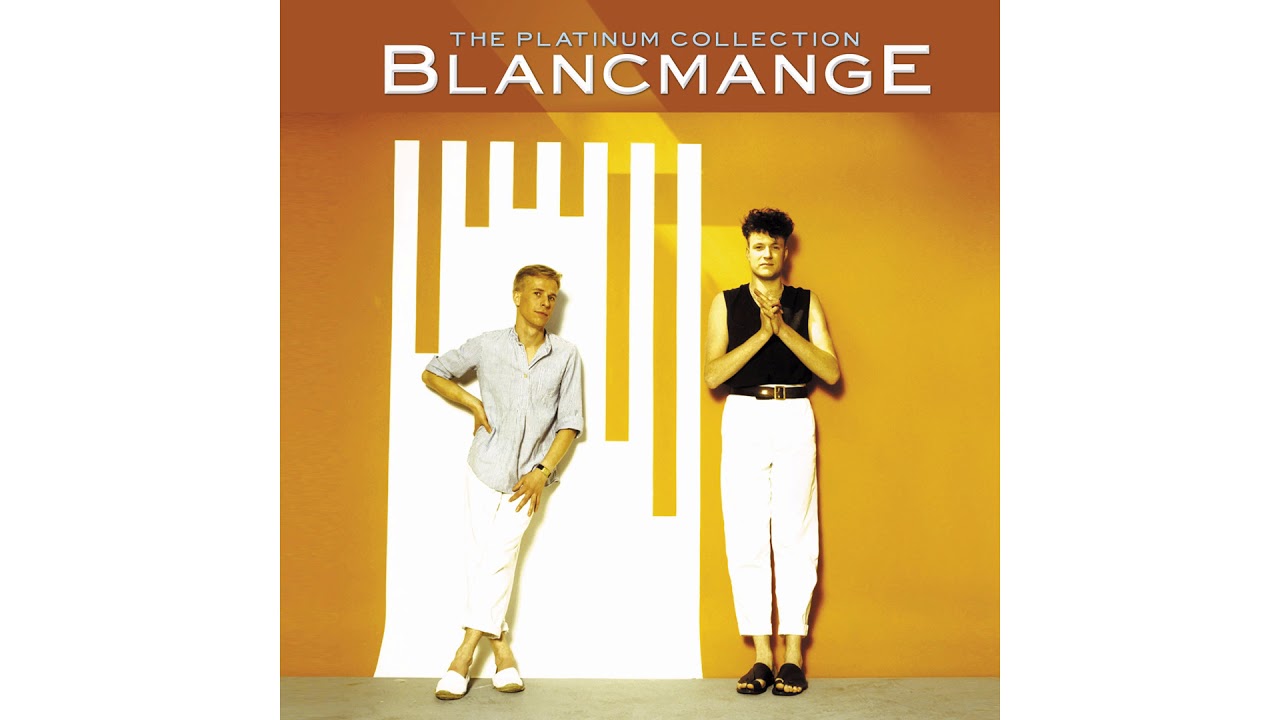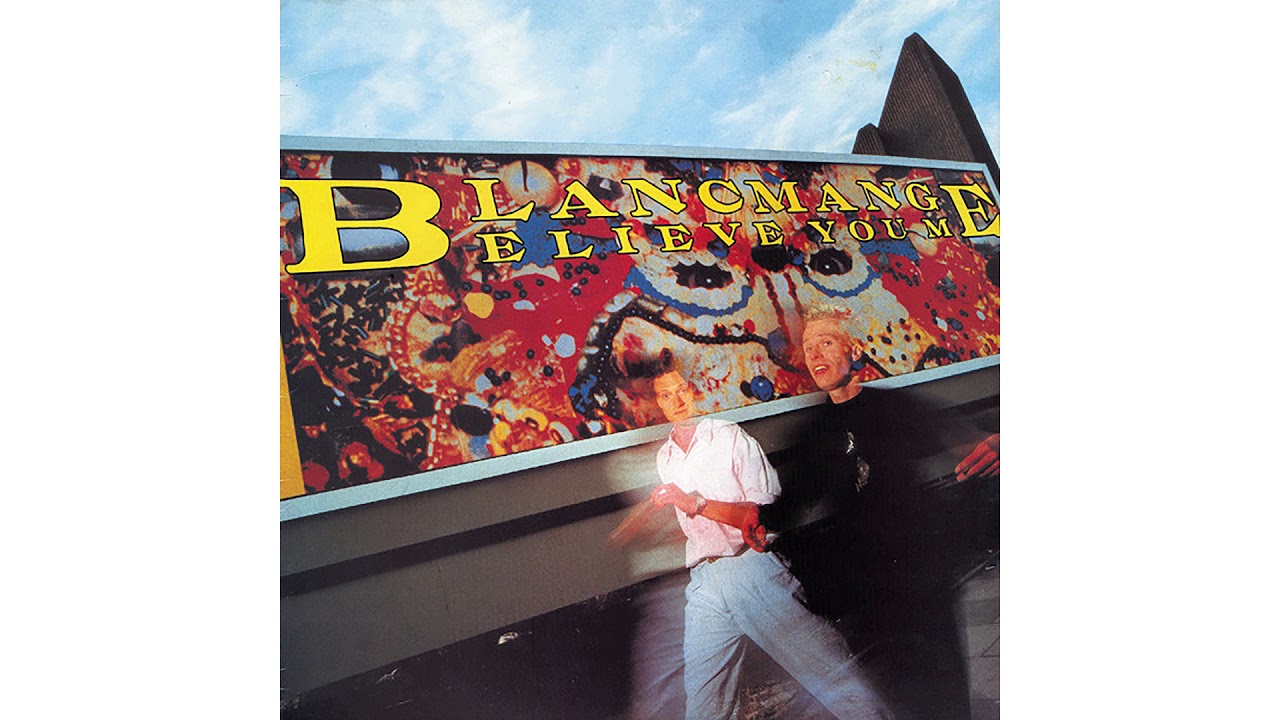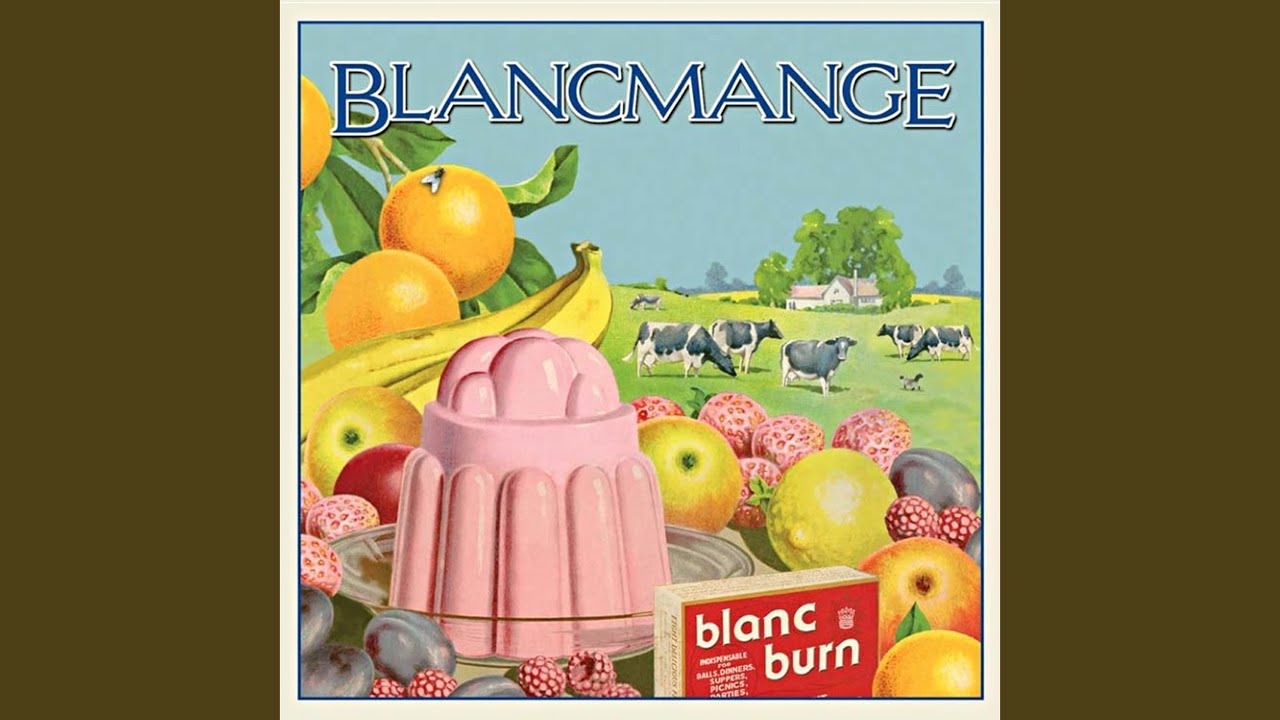Neil Arthur of Blancmange by Piers Allardyce
Infamously described as “The Maiden Aunts of Techno" by Mute Records boss Daniel Miller, Blancmange have quietly carved out a wry, observational and very British desire-line of their own making.
After appearing on the Some Bizzare Album (alongside B-Movie, The The, Depeche Mode and Soft Cell) the duo of Neil Arthur and Stephen Luscombe hit the charts with the smash hit single, ‘Living On The Ceiling’. Blancmange hit their stride releasing some of the best synth pop singles of the 1980s in ‘Waves’, ‘Blind Vision’, ‘Don’t Tell Me’ and a much-loved and unique cover version of Abba’s ‘The Day Before You Came’ before splitting in 1986.
In 2011 they reformed, releasing and touring the album Blanc Burn although shortly after Luscombe had to leave the group due to health issues. Since starting again, Blancmange have released six albums with two of them, Waiting Room and Mindset, released this year.
I interviewed Neil Arthur during the first week of Lockdown, which he described as "really worrying" before adding: "It’s bonkers. People are just gonna have to raft up. Obviously there’s a lot of people coming together and helping each other and community spirit to a degree, but you only need to go down to the supermarket to see the vultures and the pathetic behaviour of some humans. In Lidl they’ve put a stop on the panic buying now, you can only buy four power tools, one pink sports bra and two trumpets at any one time."
Part of their tour has been put back until November and December and hopefully dates between September and October are still going to go ahead. He hasn’t been idle in lockdown however and no less than two Blancmange albums have been released since this interview took place. The first is Waiting Room (Volume 1), an odds and sods comp, and the second is the new studio album proper, Mindset which came out on Friday.
‘Holiday Camp’, from the Irene & Mavis EP (1980)
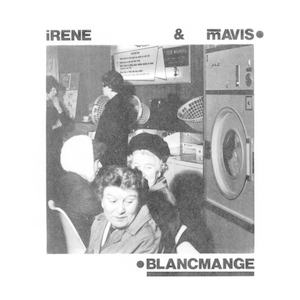
This was the point where you were using Tupperware and utensils to make a beat, you really were the original kitchen sink band. You re-recorded this in 2005 and also put up pictures of the original drum machine. Are you returning to that simplicity or that sound?
Neil Arthur: I’m always trying to strip things down because simple is so difficult to get. The reason I re-recorded ‘Holiday Camp’ was because a number of years ago I thought it would be a good exercise to see where I went with it this time. So I sent it to Stephen – we still speak a lot and exchange files – and we had a laugh about it, which is always a good sign as his health isn’t too great. [Luscombe suffered from an abdominal aneurysm in 2011]. He’s never lost his sense of humour!
The first time we did ‘Holiday Camp’, we used the rhythm unit that was aprt of this Italian organ Stephen had – an Armon Bunny One. I distorted my guitar through a home-made amplifier that I’d built when I was still at school. The keyboard went through a Melos Echo Chamber unit, which is why you get that strange delay on the bass part because Stephen’s playing that at the same time as the rhythm unit is running. It had a programmable bass – you’d hold a note down and it would play to a preset rhythm, y’know, ‘Slow Rock’ or whatever, and it would give you an accompanying bassline, but it would be very, very minimal.
You and Stephen met when he joined your band L36O – you were also in another band at the time, The Viewfinders, which I’ve read described as a garage band. I’m guessing they were remarkably different to improvised and experimental music you would make initially with Stephen.
NA: Yes, The Viewfinders was some mates at art college, where I first met Stephen. I had been to see his band MIRU, and a couple of weeks later he came to see me play at the college bar with The Viewfinders and we got talking about shared interests in music; Captain Beefheart, Neu!, Pere Ubu and then we got together to do some music – using Tupperware and tape-loops and god knows what.
‘Sad Day’ – from Some Bizzare Album (1981)
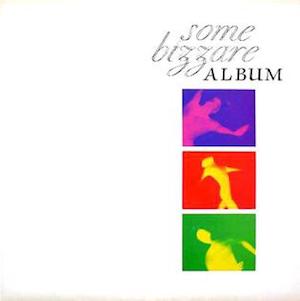
I can hear the wistful elegiac tone of Brian Eno’s ‘On Some Faraway Beach’ here, an ambiance also present in ‘Holiday Camp’. This quality didn’t last long in your music initially but it’s back now on the albums Mindset and Wanderlust.
NA: Yes, in a kind of a mental sense I carry ‘Sad Day’ with me everywhere I go. It’s a template actually. Quite often when I start off putting things together, I don’t know that I’ve got it until it’s done. With ‘Sad Day’ this process was so minimal.
Mark Cox who was in the 4AD post punk band Rema Rema lent us a Korg Mini-Pops and then Laurence Stevens [graphic designer and early Blancmange drummer] lent us a WASP Synthesizer. So, I’m playing the bass on the WASP and Stephen has his keyboard and then my £18 Toledo Gibson SG copy doing the guitar! It was two guitar parts – the melody and that Rrrrrrrrrrrrrrrrr! And I still play guitar like that and if I can get away with playing one string, I definitely will.
You once said that the difference between experimental Blancmange using Tupperware and tape loops and pop Blancmange was down to you seeing Young Marble Giants. Music was changing very quickly then.
NA: Young Marble Giants were a massive influence – if not on Stephen, then certainly on me. Colossal Youth is still one of my favourite albums. It was seeing them and then getting that album from Rough Trade that made me want to realign what we were doing. By the end of 1980 we’d recorded ‘Sad Day’ but we weren’t meeting up that often because we were both still at college and I had to get a job. Me and my partner Helen used to go and see Young Marble Giants play live all the time and it just changed my whole outlook on how you could do things as long as you had the confidence to keep things really simple. ‘Sad Day’ was like us doing a version of one of their songs without the lyrics.
‘Living On The Ceiling’ – from Happy Families (1982)
NA: I sometimes hear this on TV or while walking round a supermarket. It’s nice that it still gets played. I’m very proud of the work Stephen and I did with Mike Howlett on the first album. He was amazing, Mike. I know Dennis Weinreich [noted Sly Stone, Miles Davis and Talk Talk engineer] remixed it and added extra elements, but without Mike being there in the first place to take us on that giant step from having sketches to helping us realise them as Happy Families: that really helped us. And then meeting [Pandit] Dinesh and Deepak [Khazanchi] who added their inimitable parts; Deepak with his sitar and Dinesh with his Indian percussion – it was amazing and then James Lane coming along and doing some drumming on it as well to go along with the squareness of our Linn Drum programming! Heh!
What did you think of Limmy’s version, ‘Up The Bloody Tree’?
NA: Yeah! It’s better than ours!
‘Game Above My Head’ – from Mange Tout (1984)
On albums like Mindset you’ve returned to a sound of suburban paranoia which you can first hear in Blancmange’s sound here. Are you paranoid Neil?
NA: [Laughs] No, but I’m aware that I could quite easily slip into that state! Many people could become functioning paranoids! I’m really pleased that you’ve said that about Mindset because when we were discussing it with Benge [producer, Wrangler/Mr Dynamite] about how we would tackle the songs in order to make an album this came up. I didn’t have ‘Game Above My Head’ in mind but what I wanted to do with a number of them was to have a slightly up-tempo groove and over the top of that was going to be the wordplay thing. The lyrics are observations, snippets of things people say, reflections of what’s currently happening in this addled world of misinformation… the search for truth.
To a certain extent I approach making songs like I did all those years ago but I’m now surrounded by different influences and I’ve got different types of technology available, but every so often, for example, I’ll look around my work station and see that I’ve got the first rhythm unit I ever bought right in front of me. Benge and I used it on a couple of the more recent albums. Once I’ve finished it, I don’t listen to my music – I want to go and listen to The Durutti Column, I want to listen to Casiotone For The Painfully Alone, Jez Bernholz’ new album. Listening to those things you go, "I wish I sounded like that." When Blancmange was starting the big influences would have been Young Marble Giants, Pere Ubu and This Heat. We’d take those influences, put long coats on, get our hair cut short back and sides, look really serious… And what comes out? ‘Living On The Ceiling’. But we ran with it and we had a good time.
When ‘Living On The Ceiling’ did what it did, the record company said, "What do you want to do next?" We said, "Can we release ‘Waves’?" And they said, "What!? Well, maybe rework it first." So they let us work with Lynton Naiff and that’s how we ended up with a bloody full orchestra on the next single!
I wrote ‘Waves’ in a caravan whilst working fixing pavements in Rayners Lane for the London Borough of Harrow. It was a Summer job but there was nothing to do once the guys had fixed the road and taken all the sand, cement and slabs away. I was just there all day, in a caravan with nothing to do so I took my guitar to work and wrote a load of songs in the style of Young Marble Giants. I came up with ‘I Can’t Explain’, ‘I’ve Seen The Word’ and ‘Waves’. I took them to Stephen and he improved them no end! But to think that it ended up fully orchestrated! And the label said "Ok we’ll go with the new version of ‘Waves’, but you haven’t got a B-Side." So they shoved us into a studio. We had nothing so we had a rhythm unit and a synthesizer delivered because we didn’t own any! So we wrote ‘Game Above My Head’. It was quite exciting but it hadn’t dawned on us that we were paying for the studio time!
‘I Can See It’ (1986)
The rhythm of ‘I Can See It’ is quite prominent compared to the original version, which was called ‘Why Can’t They Leave Things Alone?’ and featured on Believe You Me in 1985. Around this time you walked off stage at the Royal Albert Hall and said you were quitting, that you’d both been eaten by the machinery of the music business.
NA: It’s true. We were part of a Greenpeace event at the Royal Albert Hall. I remember standing beside a great big papier-mâché whale with John Hurt, having our pictures taken and it was great – it was all for a good cause. Then we went off to do the gig and it was sold out and I think Lloyd Cole was on the bill as well. We had our good friend Malcom Ross playing guitar, a drummer and backing singers. I remember looking around and thinking, "I’m not enjoying this. This is not what we set out to do." Stephen and I were already at each other’s throats. I love him dearly but if we’d carried on we would’ve destroyed each other and it’s really not worth it. It’s only Blancmange. I wanted to go and do something else, so I came off stage and said, "I’m not doing that again", and I didn’t.
‘Why Can’t They Leave Things Alone?’ was initially recorded at Redan Studios in Westbourne Grove. It was initially very simple with cellos and flute. But then the record company had the idea that we should make it into a single and so they enlisted Greg Walsh. The two of us worked on the song down at Eel Pie Studios. Stephen came in but he wasn’t as keen. There was tension there and it was all starting to fragment, which led to this kind of split. But we both signed-off on the record and Stephen worked really bloody hard on it, but I felt that the balance wasn’t right and I wanted that balance back.
We had a chat about it and it culminated in me saying that after the charity gig I just didn’t want to do that again and there were a few songs that just didn’t get finished. It was better that we saved our friendship than carry on like that.
‘The Western’ – from Blanc Burn (2011)
You once said that Pandit Dinesh is part of the family – will you be working with him again?
NA: India calls Dinesh many, many times! He’s actually back there at the moment, he spends a lot of time there. I’d love to work with Dinesh again.
He is sometimes referred to as the "Godfather of Percussion".
NA: Yeah! In that break, when I walked out the room for 26 years, I did film music, documentaries and carried on writing. I was lucky enough to get to work with Dave and Simon from Fortran 5, I Start Counting and Komputer, on my 1995 solo album Suitcase. I also met Adam [Fuest] who I’ve worked with for many years. In the last ten years of that period, I ended up back working together with Dinesh on a project called AWP1. We made very minimal music where I took basic song structures and worked them in with Dinesh’s percussion, my vocal and my friend Brian Warner and sometimes also Dougie Neillands on percussion. Having kept in contact with Dinesh, when it came to doing Blanc Burn it seemed the natural thing to get him in.
We’d already recorded a version of ‘Living on The Ceiling’ and Dinesh had come round to my place in Brixton and put his percussion on. So, for a few of the songs on Blanc Burn we invited Dinesh to contribute and he came out on tour with us. It’d be nice to do some more stuff with him but there just hasn’t been the opportunity.
On ‘The Western’, when we got to doing the chorus – there was a bit where I just heard Dinesh when we’d been recording at Hi Street studio in Ealing – it wasn’t on the tape but I could hear him in the background going dibbi-dibbi-dibbi-dibbi-dibbi… and I thought, "Blimey – we’ll have that!"
‘Useless’ – from Semi Detached (2015)

‘Useless’ is a very upbeat and has a very ramshackle feel.
NA: Hahahaha! Brilliant! I’m very surprised you chose that one!
This could be the parallel universe Blancmange that continued with the Irene & Mavis sound.
NA: I’m very happy with that – thank you very much – I take that as an absolute compliment, and you’re right as well, I’m definitely ramshackle and I also think you should be able to sing about anything. I was doing a pop song around the idea of "Everybody loves you, useless as you are" – because we do! We’ve all been there – admit it! [Laughs]
‘We Are The Chemicals’ – from Unfurnished Rooms (2017)
‘We Are The Chemicals’ has the lyrics: "There’s been a chemical spillage/ On a trading estate/ In Altrincham/ The area in question/ Has been sealed off". Michael Hann says that with this song it’s as if you’re the fourth local newsreader of the apocalypse. It’s rich with detail. Was there a specific incident?
NA: It’s hard to explain. It’s a bit like standing next to a painting, and the painter says, "And this bit here… and then this bit here… I mixed that colour, but then what I did was…" It takes the shine off the track, but the chemical in question is us. It’s imagining a news report but in actual fact if you went to the scene you wouldn’t see conventional chemicals on the floor – it’d be us! Initially it might just be our tears but it might also be a lot more than that and we can’t see a lot of the things that affect us.
When I go on to the next verse and talk about [being] "in a garden shed" and then I make a reference to a Spike Milligan song that takes me back to Ireland, because I walk backwards across the Irish Sea. And then there’s something in a car boot – what might it be? I want people to imagine what it might be. It could be horrific but it might not be. I have a lot of fun writing in that parallel world.
‘I Smashed Your Phone’ – from Wanderlust (2018)
NA: How many times have you wanted to smash not just your phone but your friends also! For some people it’s an entire life. They can’t walk down the street without looking at it and quite often you have to move out the way of people looking at them, they can’t seem to detach themselves from it – me included.
It’s the story, told with some artistic license, of a situation that took place. And despite the seriousness of it I’m having a bit of a laugh with it as well really. It’s like the seriousness of ‘Last Night I Dreamt I Had A Job’ – because some people, including me have to work. I work, this isn’t a hobby – I have to work. Look at the situation we’re in now, it’s bloody worrying and unprecedented times. I like the imagery of that moment in 2001: A Space Odyssey where they start picking up bones and start smashing everything and that bone goes up in the air and I’m imagining the phone goes up in the air. I’m playing with the imagery and hope some people enjoy that aspect of it.
‘Mindset’ – from Mindset (2020)
NA: I wanted it to come across that I’m being really positive with this song even though the lyrics suggest I’m having difficulty because I can’t get out of a situation. It’s about that search for truth in a world bombarded with information and misinformation.
When Benge heard it, he wanted to change the bass drum to move it along more. It’s great working with him as there’s always a surprise, and with this track he came up with a better rhythm to move it along. The reference here was Neu! And so from Blancmange at the beginning it takes you to Blancmange now. And again in the guitar it goes back to Young Marble Giants.
Not everybody is going to like Blancmange, I’m completely fine about that but you’ve got to do your best. When you go on stage, if you don’t believe it – what’s the point? Every night – whether it’s a small audience or a huge audience – you’ve got to be there because without that, no one else can join you on the journey.
I was talking to the musician Ed Dowie the other day. I don’t know if you know his music, you should have a listen if you don’t – he has an album out on Lost Maps called The Uncle Sold. We’re working on a few ideas together and we were discussing the state ‘out there’ and it’s almost like there is now two worlds. It’s like an old VHS tape where you’ve got an original recording on it and then you’ve recorded over the top of that and every so often, because the tape heads haven’t been set right, you get a little bit of the other recording bleeding through. The world seems a bit like that sometimes. How do we cope? How do we react? We’ve got some soul-searching to do. Some of the things [caused by the Coronavirus] have been fantastic, the way communities have come together but also – my god – you get down to the shops and the bloody fights are going on. Let’s finish on a good note! We’ll get to the other side of this and I just want people to be safe, remain calm and help each other – that’s the main thing.
Waiting Room and Mindset are out now on Blanc Check Records. A rescheduled tour will start in September



